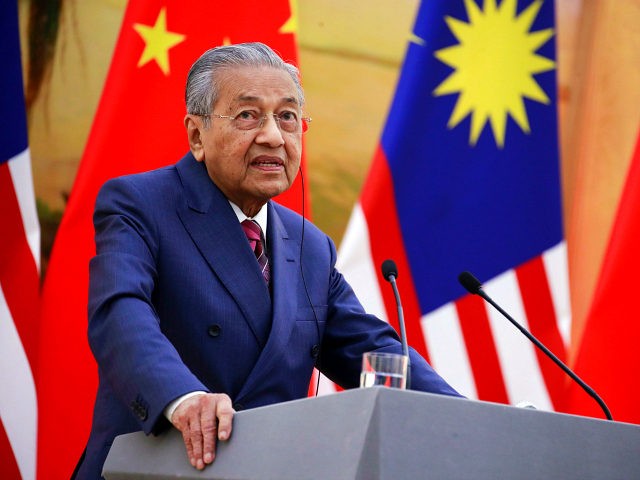Malaysian Prime Minister Mahathir Mohamed announced the cancellation of two major infrastructure projects that were part of China’s international “Belt and Road” initiative, rejecting the projects as too expensive since Malaysia is already grappling with a debt crisis.
“I believe China itself does not want to see Malaysia become a bankrupt country. China understands our problem and agreed,” said the Malaysian PM.
“It’s all about pouring in too much money which we cannot afford, we cannot repay and also because we don’t need these projects for Malaysia at this moment. With that debt, if we are not careful we can become bankrupt,” the prime minister explained.
The projects in question were a railroad and a natural gas pipeline worth a little over $22 billion combined. Some of the money already spent on them will probably be lost. Work on the projects was suspended pending “renegotiation” after 92-year-old Mahathir defeated his onetime protege Najib Razak in the May election.
Mahathir has blamed Najib for unwisely agreeing to the Chinese projects. Najib is under investigation for corruption, a good deal of it related to a massive infrastructure fund.
Although Chinese officials strove to appear magnanimous on Tuesday, Mahathir’s cancellation of the Belt and Road projects was clearly a stunning outcome. The Malaysian prime minister met with Chinese Premier Li Kequiang and had dinner with President Xi Jinping the previous day.
Mahathir said Li and Xi were good sports about the cancellation: “Initially, there were some misunderstandings, but now they understood why we do it.”
Malaysia’s sudden resistance to Chinese debt imperialism is a blow to Beijing’s regional ambitions, as Marina Rudyak of Heidelberg University explained to the Washington Post:
“Xi Jinping frames BRI as China’s contribution in a ‘new era’ where China is a responsible global player,” [Rudyak] wrote in an email. “This means the canceled projects signify a failure of China’s economic diplomacy.”
With its Belt and Road Initiative, China thought it could outperform Western projects “while at the same time helping Chinese companies to internationalize,” Rudyak said. “Turns out, there is a reason for all those bulky international standards China had frequently portrayed as obsolete and obstructing development.”
Mahathir held out some hope that the projects could be restarted at some point in the future if Malaysia’s finances improve, although he would likely require a bit of “renegotiation” even in that eventuality.
According to the Straits Times, Mahathir’s analysts “detected the condition of the contract given to the Chinese companies, including workers and materials imported from China, leaving Malaysians not benefiting from the projects.”
The Economic Times of India saluted Malaysia on Monday as “the front edge of a new phenomenon: a pushback against Beijing as nations fear becoming overly indebted for projects that are neither viable nor necessary, except in their strategic value to China or use in propping up friendly strongmen.”
The Economic Times noticed that Mahathir actually used the word “colonialism” to describe such practices while he was in Beijing, although he did not directly accuse Li and Xi of being colonialists to their faces.
“The Chinese must have been thinking, ‘We can pick things up for cheap here.’ They’ve got enough patient capital to play the long game, wait for the local boys to overextend, and then come in and take all that equity for China,” commented Malaysian political economist Khor Yu Leng, openly stating what his prime minister came just short of saying to Xi Jinping.

COMMENTS
Please let us know if you're having issues with commenting.